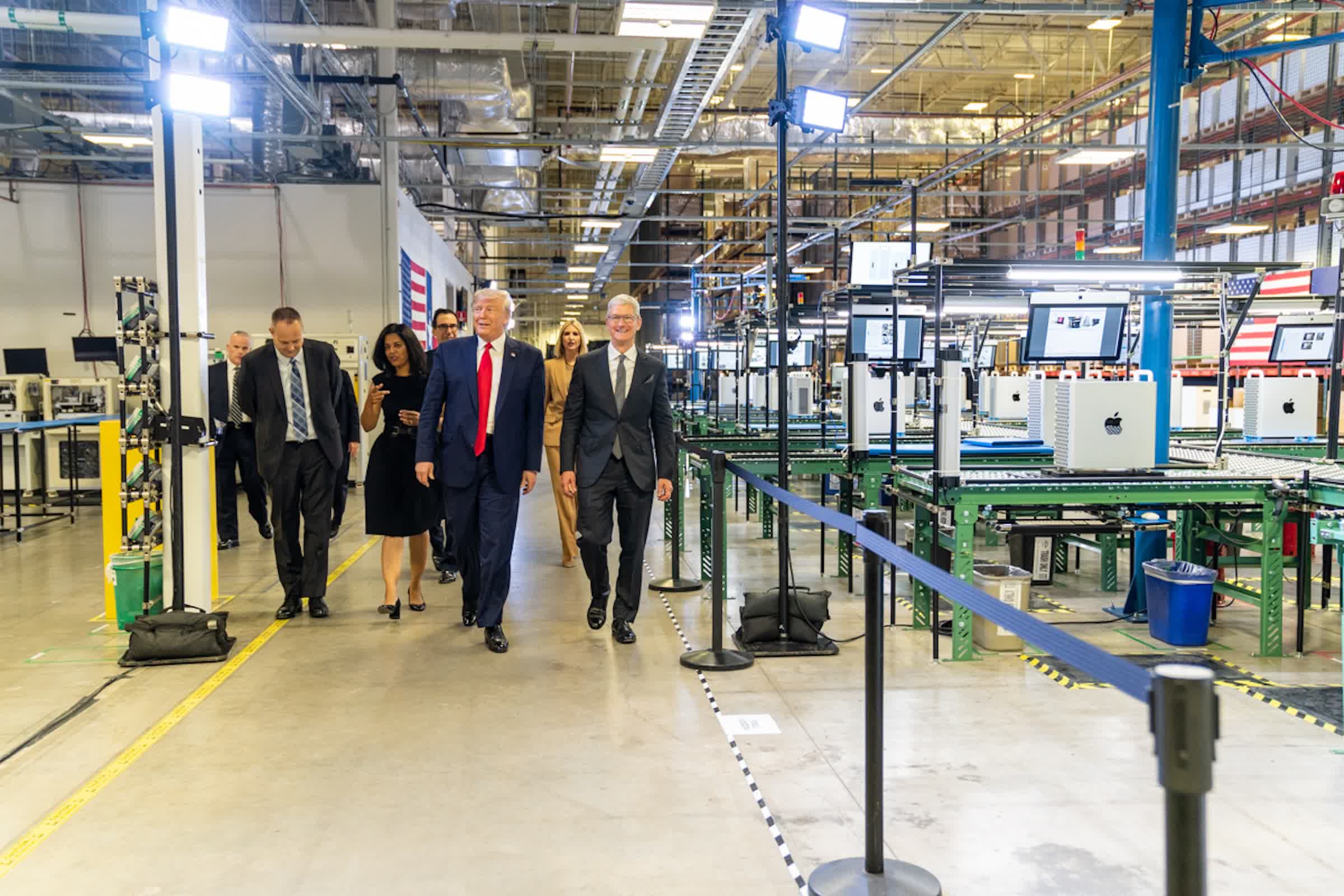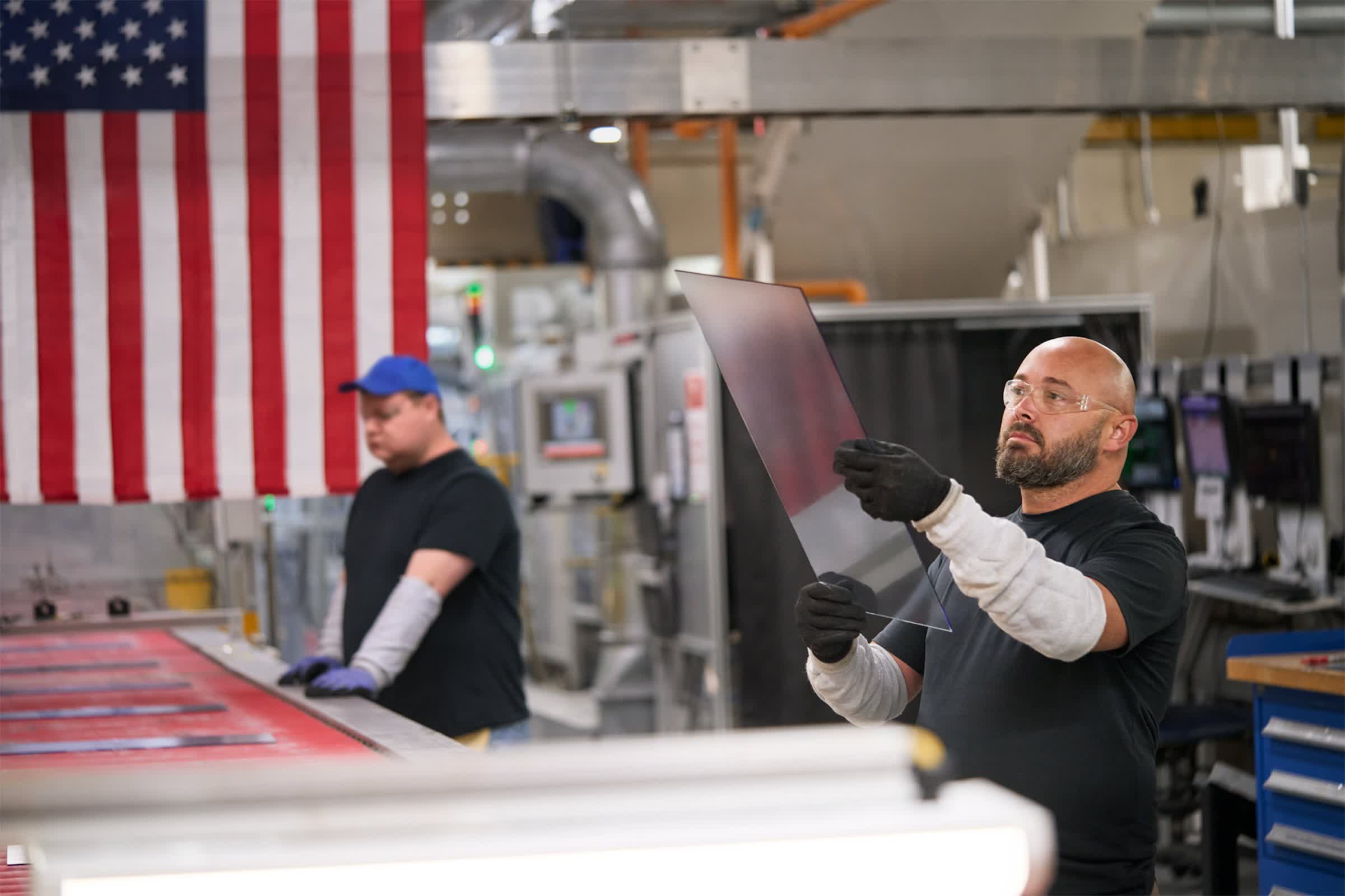Bottom line: Apple has announced a major increase of its investment in American manufacturing, unveiling plans to spend an additional $100 billion in the United States over the next four years. The pledge, revealed at a White House event attended by CEO Tim Cook and President Donald Trump, raises Apple's overall US commitments to $600 billion during this period.
The expansion arrives at a critical moment for the company as it faces mounting pressure from the White House to boost domestic production and reduce reliance on foreign manufacturing. In recent months, President Trump has repeatedly criticized Apple for assembling iPhones overseas and has warned of steep tariffs – up to 25 percent – on Cupertino's flagship products should it not shift more of its manufacturing to the United States.
Amid this backdrop, the administration is implementing a fresh wave of tariffs targeting goods from India, complicating Apple's global supply chain strategies as the firm moves production to countries like India and Vietnam to offset prior tariffs affecting China.
Apple's latest initiative, the American Manufacturing Program, focuses on shifting more of its supply chain and advanced manufacturing to the US.
Under AMP, Apple is expanding its partnership with Corning, the longstanding supplier of iPhone and Apple Watch cover glass. Apple plans to dedicate an entire factory in Harrodsburg, Kentucky, to the production of these components, turning it into what company leaders claim will be the world's largest and most advanced smartphone glass manufacturing line.
This initiative is projected to increase Corning's local workforce by 50 percent, and Apple now asserts that "every iPhone and Apple Watch sold anywhere in the world will contain cover glass made in Kentucky." The two firms also intend to launch an Apple-Corning Innovation Center in the state.
Apple is also expanding its relationships with other key partners, including Applied Materials and Texas Instruments, as well as advancing agreements with companies specializing in chipmaking equipment and components necessary for facial recognition and artificial intelligence features in Apple products.
A 250,000-square-foot server manufacturing facility is under development in Houston, which will form part of Apple's growing network of US data centers. Apple is also preparing to hire up to 20,000 workers in fields such as artificial intelligence, silicon engineering, and software development, and open a manufacturing academy in Detroit to bolster small and midsize domestic manufacturers.
Despite the size of the new investment, analysts note it falls short of the full-scale relocation of iPhone assembly and other vital operations that President Trump has championed. As of now, the bulk of iPhones sold in the United States continue to be assembled in India, according to recent company disclosures, while other devices are primarily built in Vietnam. Onshoring the entire manufacturing process for Apple's complex product lines, executives emphasize, would require a wholesale overhaul of global supply chains and facilities that support hundreds of thousands of jobs abroad.
The complicated interplay between technology, trade policy, and geopolitics continues to challenge Apple. The company has already absorbed an $800 million hit from tariffs last quarter and expects costs of more than $1 billion in the next quarter, with further price hikes possible if new levies on semiconductor-containing products are enacted as planned.
Apple's move coincides with larger shifts in American industry, as the administration promotes new investments in artificial intelligence, chip production, and data infrastructure by major technology companies. Recent projects announced in partnership with firms like Oracle, Nvidia, and OpenAI reflect a push to maintain technological leadership and domestic manufacturing capacity in increasingly competitive global markets.

